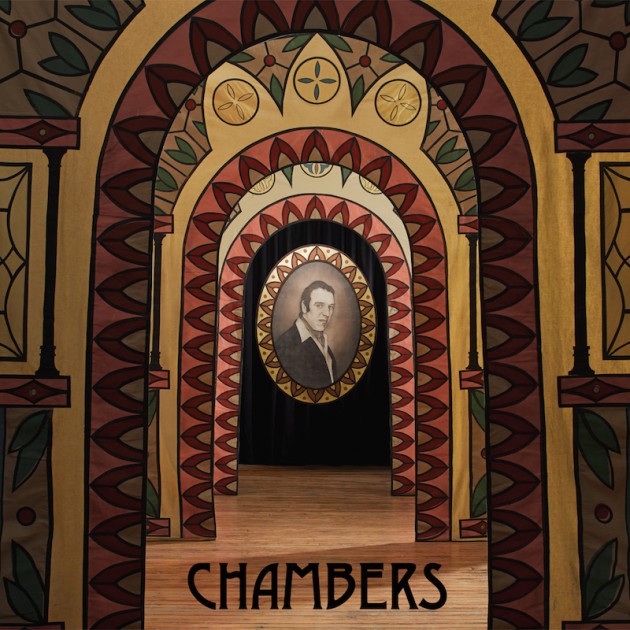Old rappers are like old heavyweight pugilists; inevitably having retired at their peak, they begin to miss the ring. Back they come for more blows to the head, their speech slowing and their hunger fading, with punchdrunk performances tarnishing a glorious career. To call Chilly Gonzales old at 42 is embroidering it a little, and he’s certainly managed to circumnavigate the pitfalls, maintaining a full and varied existence since the days of electroclash when he emerged from Berlin, keeping both himself and us interested by tearing up the rulebook, Queensbury or otherwise.
Jason Beck – the man who puts the bomb into the bombast of Chilly – retired from the rap game in 2003, and while he’s dabbled since then (The Unspeakable purported to be the world’s first orchestral rap album), he’s managed to successfully smuggle the virtuoso pianist into our midst as his own career Trojan horse, and it’s that persona we imagine now when we think of him. It’s been a gradual and surprisingly smooth transmogrification, the electro cabaret maître d’ with the extra testicle now a fully-fledged classical composer, having released Solo Piano, Solo Piano II and now this; indeed by the conclusion of Chambers and the final song ‘Myth Me’, to hear the Canadian’s voice suddenly appear almost feels incongruous. It’s testament to just how successful he’s been in his image overhaul, not that it really feels like one.
If the solo albums were groups of compositions played alone at the piano as you’d expect, then perhaps this is the next logical step towards the road to big symphonies, and Gonzales has dipped his toe into that world, performing four movements at the Barbican with the BBC Symphony Orchestra in 2012, conducted by Jules Buckley. In the meantime there has been expansionism, a gradual process, with Gonzo tagging himself to a musical tradition with a rich lineage. From Mozart to Mendelssohn, Beethoven to Debussy, music written for a small ensemble has an illustrious past even if demand has diminished in the last 100 years because of radio, jazz, rock & roll and everything thereafter. Although that said, the music of friends still belongs to the people, mainly due to a lack of overheads; try and get tickets for the opera in Covent Garden or the Palais Garnier and see if you can score them for under 100 nicker each, whereas a Schubert or a Haydn recital will probably be five or six times cheaper, maybe less. There have been groundswells in niche circles sure, and some are taking it out of indoors altogether and into the street, but Gonzales the renaissance man comes with the not uncharacteristically grand ambition of breathing new life into something contemporarily neglected. To do this he conflates the old with the new with customary swagger.
Opener ‘Prelude To A Feud’ is dedicated to Bach and Daft Punk, and the eras are bridged with an overarchingly ambitious and complicated arpeggio sequence – played by hand of course – that’s just begging to be taken and used over a luminous disco backdrop. The references delight in the highbrow and the lowbrow; on the press release ‘Cello Gonzales’ is dedicated to the aforementioned Felix Mendelssohn while ‘Sample This’ is for Rick Ross. ‘Odessa’ beguiles us with its baroque beauty, ‘The Difference’ includes the kind of modern ad libbed flourishes that might remind readers of a certain of age of the theme to Hill Street Blues, or perhaps that’s just me.
‘Freudian Slippers’, dedicated to the subconscious, features swooping strings with a hint of the klezmer tradition. It’s transcendentally sad, with a touching rhythm beaten out softly on the piano lid towards the conclusion, the only "rhythm section" featured on the record. ‘Solitaire’ maintains solidity as well as offering a route to the two previous albums recorded at the piano, but otherwise there are counterpoints and contrapuntal deviations aplenty to keep one entertained throughout.
‘Green’s Leaves’ is perhaps the most florid of all the tracks – in a good way – and it actually breaks down at one point into what could almost be described as a hoedown, but not quite. Like most of the tracks here, it’s quite lovely and never outstays its welcome. Though it does make you wonder how much bigger and how much more expansive Chilly Gonzales could go. It’s not like he lacks the ability or the work ethic, and he certainly doesn’t lack the belief. You suspect only the means – or lack of – stands in the way (those orchestras aren’t cheap), and that’s where the ambition of the prizefighter comes into play.
<div class="fb-comments" data-href="http://thequietus.com/articles/17327-chilly-gonzales-chambers-review” data-width="550">


